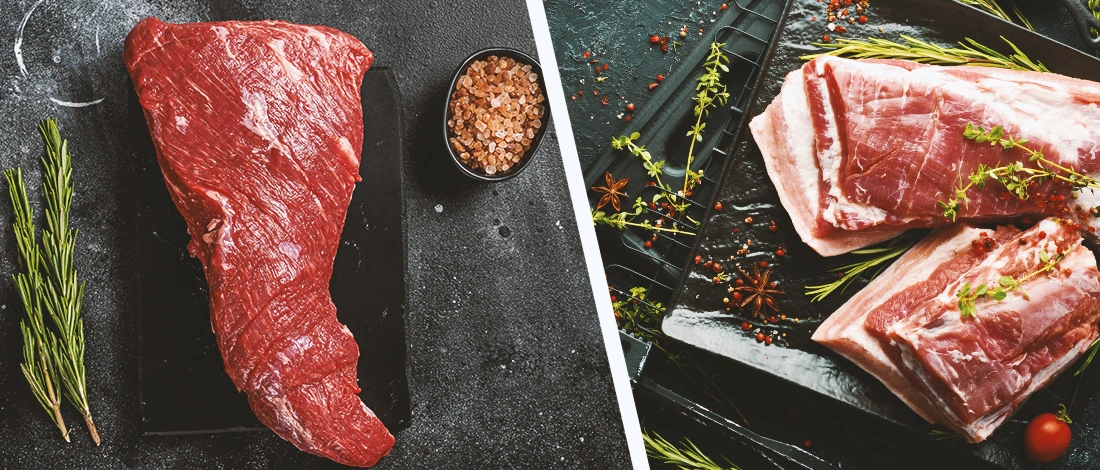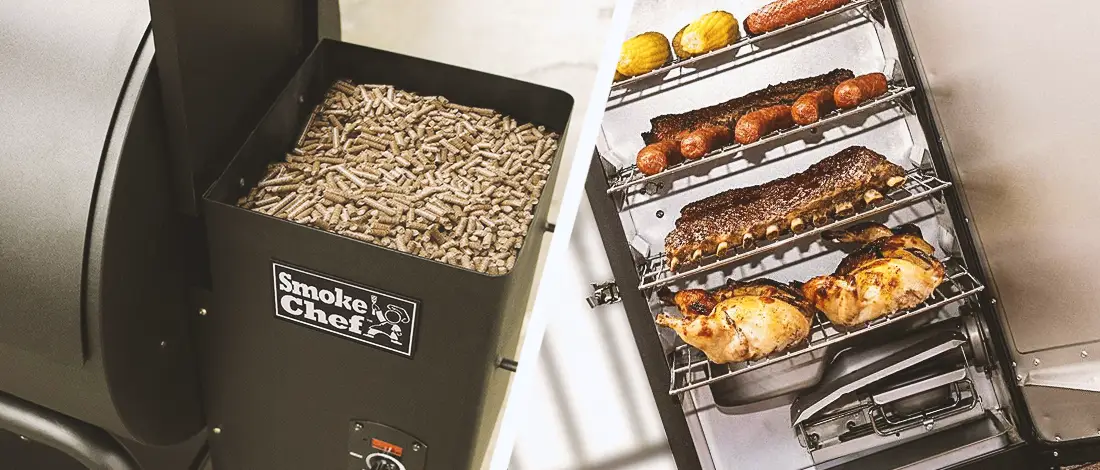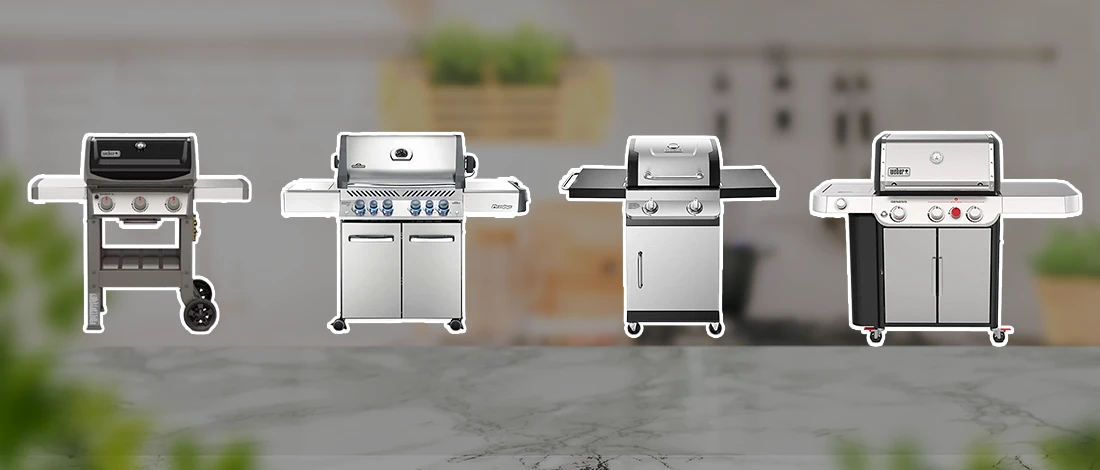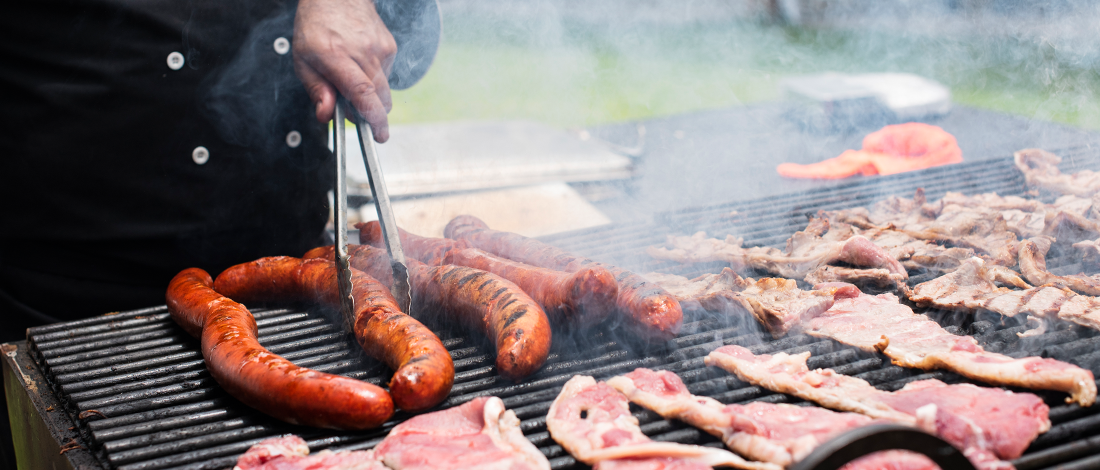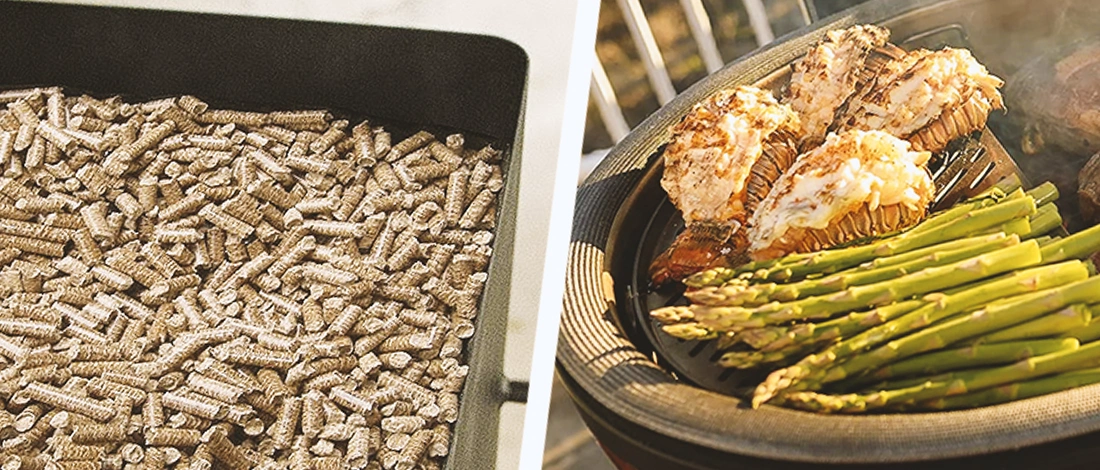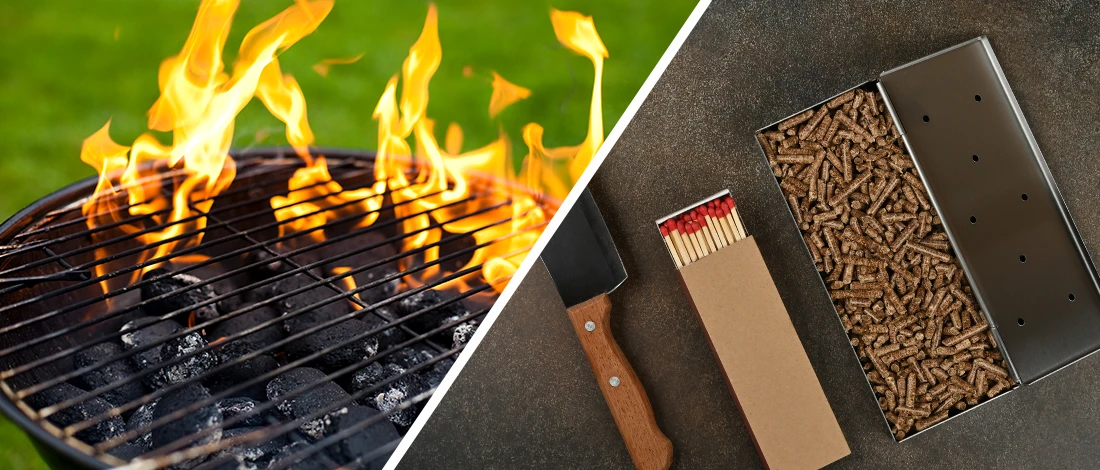Choosing a smoker/grill is not a walk in the park these days. There are literally hundreds of good brands on the market that are determined to make the journey tormenting.
As a dedicated carnivore, I have tested a lot of smokers, mostly propane and pellet ones. Today, I'll talk about their features, the overall experience based on tests I’ve conducted, and individual experiences with these smokers.
Without further ado, let’s get started.
Quick Summary
- Propane and pellet smokers differ in fuel, flavor impact, and cost.
- Propane smokers are more affordable and easy to use, but lack the smoky flavor pellet smokers provide.
- Pellet smokers offer versatility, precise temperature control, and a variety of flavor options, but are more expensive.
7 Differences between Gas Grills vs Pellet Grills
The main difference between pellet grills and propane smokers is the fuel they use.
The pellets are made from hardwood ground into compressed sawdust shaped and compacted into pellets through pressure and heat. They come with the advantage of more smoke flavor [1].
Let’s take a deeper dive into the one-on-one features between the two.
1. Impact on Flavor
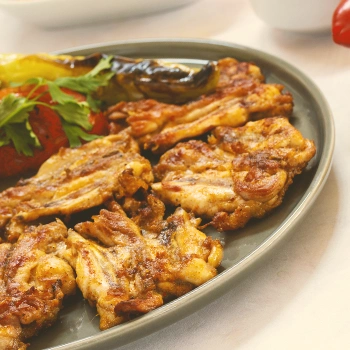
The pellet smokers win the battle of the best smokey flavor right off the bat.
Wooden pellets are not just a fuel source; they are designed to impart delicious flavors to your meat, which makes flavor one of its unique features.
Pellet grills different pellets for different scents and food aromas. So, depending on what you’re cooking, you can experiment with different wood chips to achieve unique aromas.
Common wood pellets used for unique smoke flavors include Southern Hardwood, Ironbark, Apple, and Hickory.
The last two are my personal favorites. They are classic BBQ woods and you can literally cook anything with Apple and Hickory [2].
On the other hand, gas smokers cannot recreate the smoking meat effect found in a pellet grill.
Meat cooked with a propane smoker tastes no different than food cooked on a stove.
Not to say that they contribute to bad flavors, but they only rely on meat seasoning for flavor.
Also Read: Wood Pellets vs Wood Chips
2. Initial and Operating Cost

The initial costs are incomparable, with the propane smoker being more pocket friendly than the pellet smoker.
You can find smaller, entry-level gas models at meager prices –as low as hundreds. Of course, if you want a top-notch model, you’ll have to cough out thousands.
Most pellet smokers are priced in thousands, which is a huge initial investment. But at the same time, they last for years, and you get what you’re paying for.
Pellet machines operate on burning wood pellets, and a 20-pound bag of wood pellets costs about $20-$30 and could last about 8 hours.
On top of that, they operate on electricity which heats the pellets. So, in addition to the pellet costs, the overall operating costs also depend on how much electricity is consumed.
On the other hand, a gas grill operates on fuel. Typically, a gas cylinder costs $30 and gives you 20 hours of cooking time on most gas grill models.
So, in comparison, the running cost is much lower in gas grill options.
3. Ease of Use
Regarding the ease of use, I’ve discovered that gas grills can be hotter than usual and it can be difficult to maintain less heat.
In short, they are not the best-insulated cookers. Although this may depend on the model, you should keep an eye out for temperature swings with gas grills.
On the other hand, you have more control over temperature with a pellet smoker. That’s because the equipment comes complete with linked fuel feed and temperature sensor features.
A Pellet smoker is a proper definition of “set it and forget” and is more like an outdoor oven.
“In many ways, pellet grills act like giant convection ovens and offer far superior taste and ease of use compared to gas grills, according to the growing number of die-hard “pellet heads.”
- Tim Clark, Brand contributor at Forbes
4. Versatility
Versatility is another area where pellet smokers shine. The pellet machine is designed in such a way that it benefits from both direct and unintended heat.
The difference comes in handy when handling foods like rib meat that requires hours of indirect heat and smoking to break the connective tissues.
Additionally, you can use the machine for baking and grilling and switch between cooking methods.
On the other hand, the gas grills are built for one job. It doesn’t display much versatility, except that you can easily change the flame size. But that’s it.
5. Temperature Range and Control
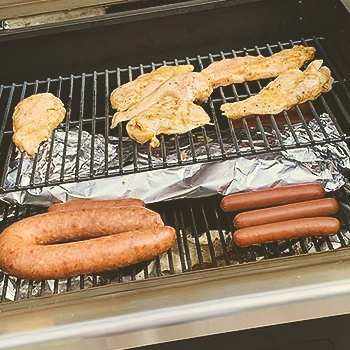
Pellet smokers can achieve higher temperatures as high as 450°F. They also have advanced temp control that enables fine temperature adjustments of as low as five degrees. With an optimal temperature of 200-300°F, you can cook at low heat and avoid heat loss. However, the cooking is still slow, and you may not get those sear marks on the chicken breast you want.
On the other hand, gas grills temperatures go as high as 700°F to give you quick results. But this comes at a price – temperature adjustments are not finely tuned. So, you’ll find it hard to set the right temperature. Also, maintaining a low temperature can be difficult if you’re trying to heat at low and slow temps.
Ultimately, it all depends on whether you want to cook food low and slow or at high temperatures and quickly. For cold smoking with some pellet smoker models, you might need a cold smoker attachment or a smoke tube.
6. Runtime Before Fueling
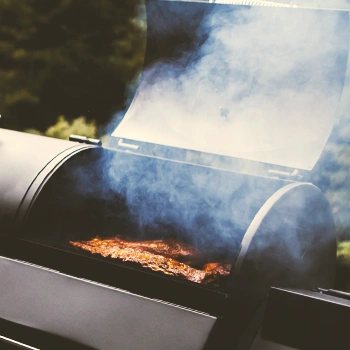
The runtime before refueling varies in the gas and pellet cooker. If you’re using a pellet smoker, the number of wooden pellets consumed per hour in the cooking chamber depends on the temperature you’re cooking with.
Half a pound an hour of fuel pellets should be enough pellets if you’re smoking food. But if you’re high-heat searing, you’ll spend 2 pounds an hour.
All matters constant, a normal-sized pellet smoker holds 8 hours of cooking, which should be enough fuel even for a slow cook. But for longer sessions, you’ll have to refill constantly.
With a gas grill, a standard gas tank can get you around 20 hours of cooking. That’s if you’re not connected to a natural gas line. In that case, you can cook forever.
7. Cooking Options
Most gas grills offer accessories like griddles, smoke boxes, gas burner, rotisseries, and illuminated knobs.
On the flip side, pellet smokers are pretty versatile and give you a smoker, an oven, and a grill, all in one.
You can smoke anything on pellet grills. In addition, pellet grills come loaded with high-tech features like WiFi and digital temperature control.
Similarities Between Pellet Smokers vs Propane Smokers

- Neither machine requires you to start a fire manually as charcoal grills do.
- Unlike charcoal grills, neither the pellet grill nor the gas grill creates a mess at the end of the cooking.
- Both are relatively easy to use. Unlike the charcoal grill where you need to light it, with the pellet grills, you only need to feed the pellets and set the temperature. The gas grill may require a bit of your attention when adjusting the temperature, but all in all, it’s also easy to use the equipment.
The Pros of Gas Grills and Pellet Grills

Gas Smoker Pros
- They are freely available in local outlets.
- Smokers come at reasonably low prices. Some are priced as low as $200.
- The machines are lightweight and conveniently portable. You can transport them without difficulty.
- It's easier to find a replacement part for a gas grill than for a propane smoker.
- A propane smoker is relatively easier to use compared to other smokers.
Pellet Smoker Pros
- Pellet grills have accurate temperature controls that automatically feed the right amount of pellets into the smoker to keep the temperature stable.
- A pellet smoker is a versatile machine, combining a grill and oven, in addition to its ability to smoke meat.
- A 40-pound bag of pellets results in just half a cup of ash. That means cleaning up the firepot is fast and easy with a pellet grill.
- Modern pellet cookers come equipped with tech features such as Wi-Fi and let you control the pellet grill from your smartphone.
The Cons of Gas Grills and Pellet Grills
Gas Smoker Cons
- With a propane smoker, it's always difficult to tell how much propane is left. This may force you to have two canisters to prevent the inconvenience of gas running out halfway through the smoking process.
- You need to keep an eye on your gas grill if your propane tank is low budget. Some propane smoker models are known to run hot.
- There are claims that the mixture of gas fumes and moisture may affect flavor by adding an unpleasant taste to the meat.
- Some low-budget models are poorly insulated and temperature may fluctuate during cold and windy days.
Pellet Smoker Cons
- Wood pellets on pellet grills are not as easily available as gas and charcoal and it can prove difficult to get them on short notice.
- The convection fan, augur, and temperature controls are electric. As such, a pellet grill needs to be plugged into an electric outlet, which limits its portability.
- Given their capabilities, pellet grills are relatively more expensive than gas grills. Sometimes even double their price.
- Because it's made of hardwood, a wood pellet is sensitive to moisture. When exposed, they disintegrate and become useless. Storing in a dry place is crucial
Related Articles:
Gas Grill vs Pellet Grill: Which One Is Right for You?
Choosing between gas and pellet grills boils down to your personal preferences and your budget.
Both types of smokers have their advantages and shortfalls so it's important to make an informed decision before purchasing these machines.
To make it easier for you, we've compiled a list of the best smokers for a tight budget, so take a look and pick one within your price range.
References:
- https://www.naturallywood.com/products/wood-pellets/
- https://www.traeger.com/learn/wood-pellet-guide

